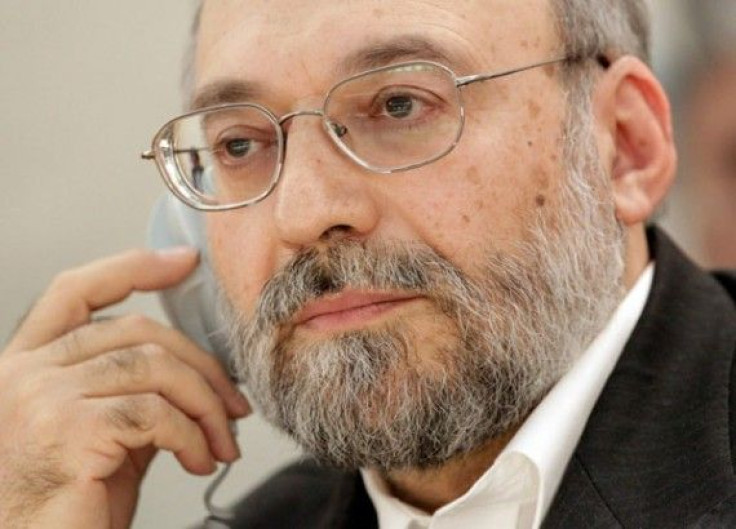Obama's Reelection Changes Nothing: Iran

Iran, which will loom heavily over the next four years, reacted to U.S. President Barack Obama's reelection in a lackluster manner, suggesting Tehran will not normalize ties with Washington anytime soon, citing the ongoing imposition of economic sanctions on the Islamic Republic.
"Four years ago, Obama was elected on a platform for change and said he was extending his hand for cooperation with Iran, but he acted otherwise and unprecedented sanctions were imposed," said judiciary chief Ayatollah Sadeq Larijani, according to Iran's Fars news agency.
"Relations with the United States are not simple, especially after all the pressure and U.S. crimes committed against the Iranian people."
Larijani added: "An overnight resumption of relations is not possible. The Americans should not think they can gain concessions from the Iranian people by coming to the negotiating table.”
In 2008, Obama's election elicited approval in Iran, raising hopes of a rapprochement after eight years of stridency from the administration of George W. Bush. Yet, the specter of Iran developing nuclear weapons prompted Obama and other Western leaders to impose draconian sanctions on Iran.
Iran and the U.S. severed diplomatic ties in 1979 in the wake of the the storming of the U.S. Embassy in Tehran and the Islamic Revolution of Ayatollah Ruhollah Khomeini.
However, Larijani's brother, International Affairs Adviser Mohammad Javad Larijani held out a smidgen of hope.
"If the interest of the [Iranian] regime requires it, we are prepared to negotiate with the devil [U.S.] in the pits of hell," he said, according to the Iranian Students News Agency (ISNA).
Jamie Chandler, a political scientist at Hunter College in New York City, commented that Iran will be under increasing diplomatic pressure during Obama's second term.
“Diplomacy will be the default method for ending Iran's Nuclear Weapons program - most likely working closely with China to get Tehran to capitulate,” he said.
“But Obama will also toughen his rhetoric with a discussion of military options.”
However, the wild card is the next Iranian presidential elections.
“A more amenable Iranian regime could bode well for US/Iranian relations,” Chandler added.
The Washington Post reported that the Iranian regime is nonetheless likely relieved that Mitt Romney lost the election, citing his hawkish tone against Iran and strong support of Israel.
An Iranian blogger wrote on a popular website called Asriran: “At least we know we won’t be going to war during the next four years.”
Iranian media covered the election heavily, with the English- language Press TV network broadcasting Obama's acceptance speech in its entirety.
Mohsen Asgari, the BBC correspondent in Tehran, commented: “Many in Iran ... believe a Barack Obama victory makes life safer for the people, because the U.S. will move quickly to set up a new round of talks over Iran's nuclear ambitions.
Moreover, Naser Hadian, a political professor at Tehran University, said Obama's popularity with other world leaders will mean sanctions against Iran will only harden.
Which raises the matter of Israel -- Prime Minister Benjamin Netanyahu and Defense Chief Ehud Barak have repeatedly warned the Jewish state will strike Iranian nuclear facilities, perhaps by next summer.
Netanyahu, who endorsed Romney in the U.S. election, will now have to gingerly deal with Obama in order to solidify U.S. support for any attack on Iran.
© Copyright IBTimes 2024. All rights reserved.











